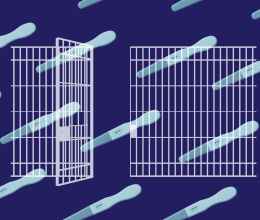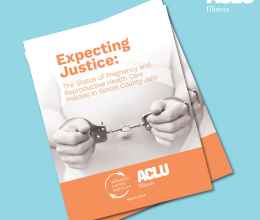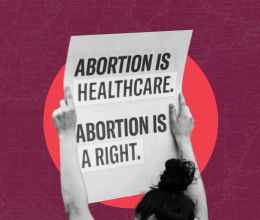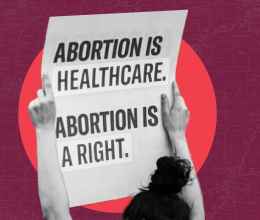
We have joined with a number of national and local advocates in challenging policies of two large landlords in Cook County, Illinois that automatically reject applicants for rental housing who have any prior connection to an eviction case. These “No-Evictions” policies shut out families from housing opportunities even when the eviction case was dismissed or was filed years ago. Such policies have a discriminatory effect on Black renters, and especially Black women, in violation of the 1968 Fair Housing Act.
Analysis of data from the Cook County Sheriff’s Office found that while Black people of all genders make up just 33 percent of Cook County renters, Black people were approximately 56 percent of the individuals from September 2010 to March 2023 either served with an eviction case by the sheriff’s office or evicted by the sheriff’s office. Black women alone accounted for approximately 33 percent of those served or evicted despite making up just 22 percent of all renters in Cook County. Black renters faced nearly triple the likelihood of experiencing an eviction case than non-Black renters.
Legal Aid Chicago filed a federal lawsuit against Hunter Properties arguing that Hunter’s “No-Evictions” policy has a disparate impact based on race, as well as on race and sex. Hunter’s website makes clear that “Prior eviction filings will result in denial” of housing applications, resulting in discrimination against Black renters, especially Black women. The lawsuit also claims that Hunter’s practice of excluding potential tenants based on sealed eviction records violates Illinois state law prohibiting unfair residential leasing practices.
In a separate, similar matter, HOPE Fair Housing Center (HOPE) filed a civil rights complaint with the U.S. Department of Housing and Urban Development against Oak Park Apartments, one of the largest operators of rental housing in Oak Park, Illinois. The complaint argues that Oak Park Apartments’ “No-Evictions” policy both has a disparate impact on Black renters, especially Black women renters, and perpetuates and reinforces residential segregation.
The two matters are among the first in the nation to challenge landlords’ eviction screening policies as discriminatory.
Legal Aid Chicago is represented in the suit by the American Civil Liberties Union, the ACLU of Illinois, the National Housing Law Project (NHLP), and the law firm Mayer Brown. HOPE Fair Housing Center is represented in its complaint by the ACLU, the ACLU of Illinois, and NHLP.





